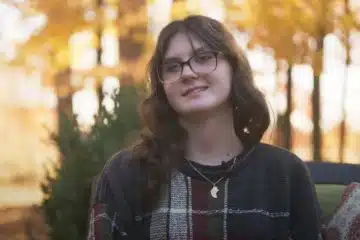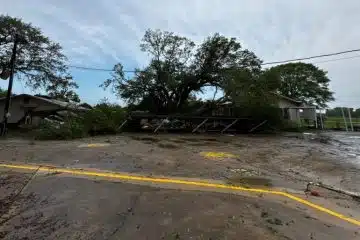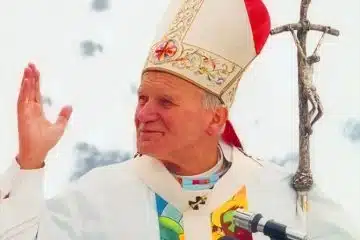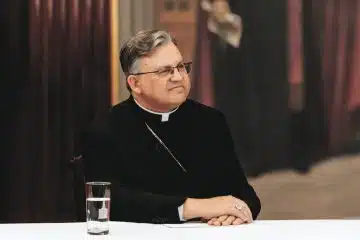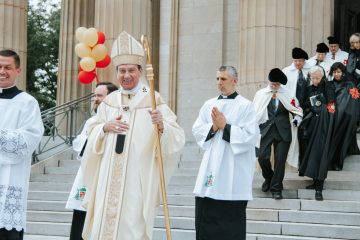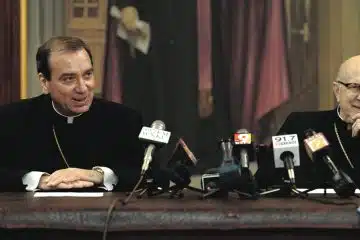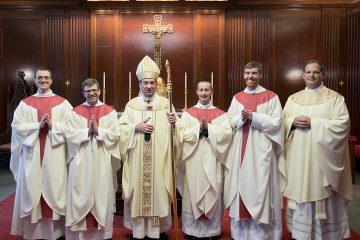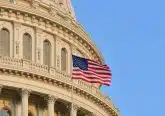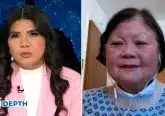UD presents human rights award to USCCB
Thursday, April 15, 2010
DAYTON DEANERY — The University of Dayton presented its Oscar Romero Human Rights Award to the United States Conference of Catholic Bishops’ (USCCB) Migration and Refugee Services on March 29 during a special ceremony in the Immaculate Conception Chapel.
 |
| Mark Ensalaco, director of the human rights studies program at UD presents the award to Ambassador Johnny Young, executive director of the USCCB’s Migration and Refugee Services. (CT/E.L. Hubbard) |
The award was created in 2000 to honor the ministry and martyrdom of the Salvadoran archbishop slain while celebrating Mass 30 years ago because of his vocal defense of the human rights of the poor and disenfranchised. It is presented to an individual or organization that has earned distinction for the promotion of the dignity of all human beings and alleviation of the suffering of the human community in the spirit of Christian humanism that animates the University of Dayton.
Ambassador Johnny Young, executive director of Migration and Refugee Services, accepted the award. Bishop John Wester of the Salt Lake City diocese, who serves as chair of the USCCB’s Migration and Refugees Committee, delivered the acceptance address, speaking on the topic of “Whatever You Did for the Least of These.”
“We are trying to honor Romero’s ministry and martyrdom by addressing the very serious human rights issues we confront here and now,” said Mark Ensalaco, director of UD’s human rights studies program. “We are focusing on the rights of migrants and refugees and the awful scourge of human trafficking which we know is taking place all around us. The selection of Migration and Refugee Services as this year’s award recipient is really an expression of the University of Dayton’s recognition of the importance of its work.”
Past recipients of the award include Juan Méndez, former director of America’s Watch and president of the International Center for Transitional Justice and United Nations special representative on the prevention of genocide; Casa Alianza, which operates programs to help homeless and abandoned children in Central America, Honduras, Mexico and Nicaragua; Radhika Coomaraswamy, former U.N. special rapporteur on Violence Against Women; Juan Guzman, the Chilean judge who prosecuted the former Chilean dictator Augusto Pinochet; and Bernard Kouchner, co-founder of Doctors Without Borders.


